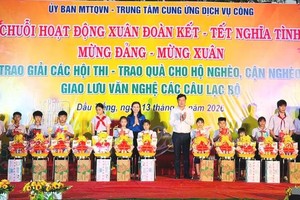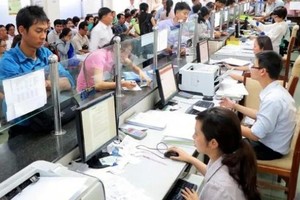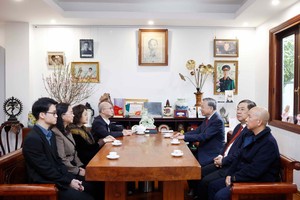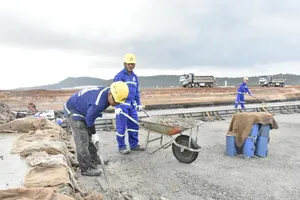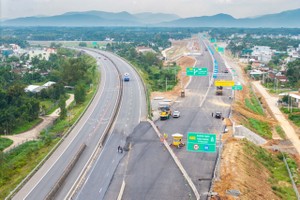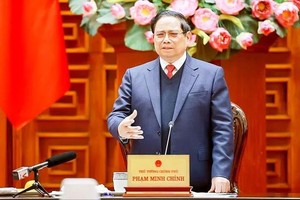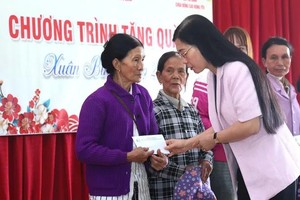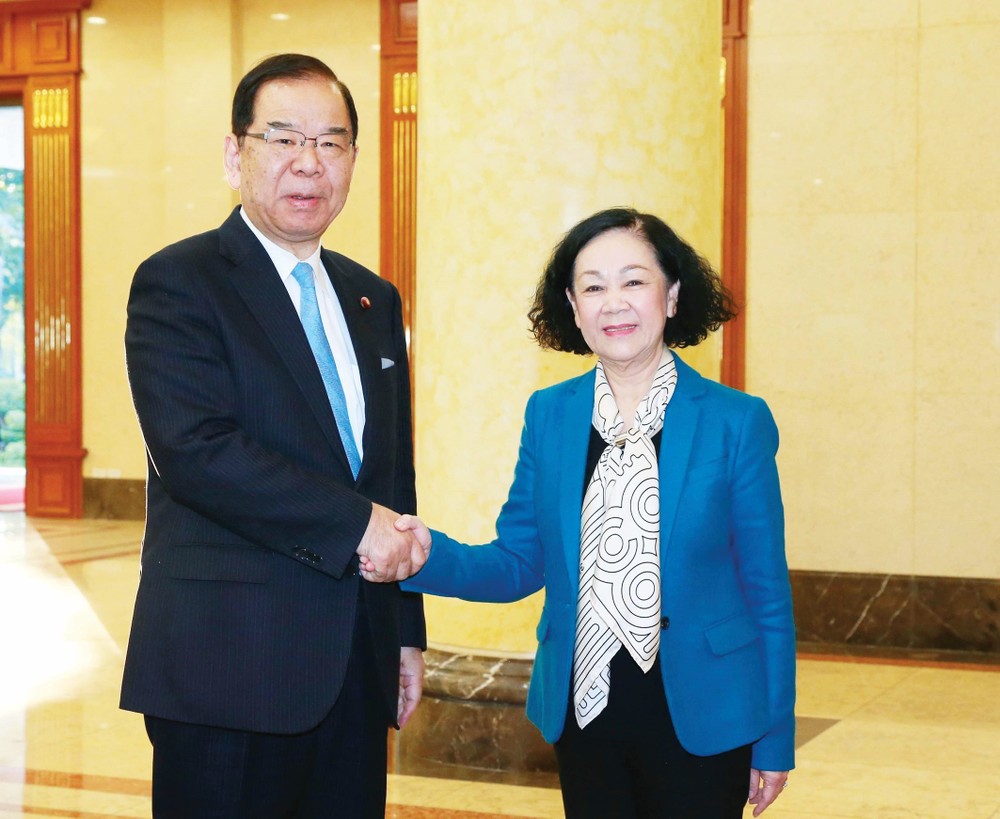
At the National Foreign Affairs Conference in late 2021, Party General Secretary Nguyen Phu Trong emphasized Vietnam has used foreign affairs to prevent wars from occurring and stop wars early in the most favorable position and in building and protecting the country.
Vietnamese 'bamboo diplomacy'
Looking back at the year 2023 and the 13th National Party Congress, Vietnamese people are more aware of the profound strategic observations and assessments that were mentioned in the Party Congress Resolution that the world is going through huge changes, developments are rapid, complex; therefore, it is difficult to predict the world situation.
Though the Covid-19 pandemic was declared not to be a global Public Health Emergency any longer, the world still struggling to overcome its socioeconomic consequences has been dragged into conflicts, contradictions and strategic and regional competitions.
Notably, the prolonged Russia-Ukraine conflict and the Gaza Strip conflict have seriously posed a serious threat to regional and international security. The world continues to face the risk of economic recession and lower-than-expected growth along with the risk of global supply chain disruption, increased inflation, and existing financial instability.
Potential risks and difficulties are piling up in a world where the division, separation, and concentration of forces in international relations are increasingly clearer and more serious. Governments in the world are suffering mounting pressure to choose sides while still ensuring people's lives and strengthening the international position of their nations.
In that context, Vietnam begins to race for the implementation of the goals set in the 13th National Party Congress.
Under the wise leadership of the Party, the administration of the State and the unanimity of Vietnamese people, the country has achieved fruitful results in many socio-economic aspects while defense and security are maintained. In particular, Vietnam's foreign affairs have really recorded remarkable results.
Vietnamese diplomacy for the benefit of the nation
Vietnamese diplomacy is soft and wise but still persistent and resolute; flexible and creative but consistent, valiant and resilient against all challenges and difficulties. With the motto “Di bat bien, ung van bien” (target is immutable, measure is flexible), Vietnam has properly handled foreign affairs and relations with partner countries based on respect for each country’s independence, self-reliance, and respect for international law. Vietnam has become a reliable partner of the international community despite the unstable and uncertain world. Thus, the country’s international position and reputation are constantly being enhanced.
Vietnamese leaders’ 45 visits to neighboring countries, strategic partner countries, and most ASEAN countries and leaders of other countries’ 50 visits to Vietnam with fruitful results have made the picture of Vietnam's foreign affairs in 2023 bright and colorful.
Among these was the state visit to Vietnam by General Secretary and President of China Xi Jinping in December. General Secretary Nguyen Phu Trong and General Secretary and President of China Xi Jinping witnessed the signing ceremonies of 36 cooperation agreements between the two countries with efforts for the happiness of the people of the two countries and for peace and progress of mankind (excerpt from the Vietnam - China Joint Declaration).
During the historic state visit to Vietnam of President Joe Biden at the invitation of General Secretary Nguyen Phu Trong, the two countries elevated U.S.‐Vietnam relations to a Comprehensive Strategic Partnership, renewing the strength and dynamism of the U.S.‐Vietnam relationship as both countries have worked together to achieve the shared goals of peace, prosperity, and sustainable development.
For the first time, Vietnam has had a Strategic Partnership or higher with all 5 permanent members of the United Nations Security Council including China, Russia, the United States, the United Kingdom and France.
At the same time, the Southeast Asian country is the only country that has a Comprehensive Strategic Partnership with three countries - the world's most dominant and powerful nations including China, Russia, and the United States. Vietnam has elevated its relations with many important partners while consolidating political trust with many countries.
Vietnamese diplomats have also promoted dialogue in the delimitation and resolution of a number of border and territorial issues, contributing to firmly protecting the independence, sovereignty and territorial integrity of the country. Vietnamese representative agencies abroad have become a bridge to mobilize all external resources to promote exports, attract investment, science and technology, closely connecting overseas Vietnamese with the fatherland, making Vietnam’s economy brighter amongst global economic downturns.
Vietnam’s diplomacy aspires to steadily move toward development
As the world enters the new year 2024, the world and the region will surely continue to have many uncertainties and instabilities, and people feel anxious. It is forecast that the world and regional situation will continue to develop complicatedly with the greater likelihood of many new rising unpredictable developments while the world economy is expected to still face difficulties and probably at risk of a recession.
Strategic competition among big countries is predicted to continue to be fierce, causing tension in international relations. Small countries are under increasing pressure to gather forces and choose sides. The conflict between Russia and Ukraine and the Gaza Strip conflict are likely to last long, affecting geopolitics, geoeconomics, energy security and the global supply chain.
Meanwhile, hot spots - from the Korean Peninsula to the East Sea and the Taiwan Strait always pose a potential risk of political security instability. The division in international relations will reduce common efforts in response to global challenges and issues relating to non-traditional security will become increasingly intense.
In that context, completion of the goals for the 2021-2025 period requires great determination and great effort. The country in general and Vietnam's foreign affairs in particular will still have many difficulties, hardships and challenges.
However, thanks to the successes in its diplomacy in 2023, Vietnam has emerged as an independent, self-reliant, dynamically developing country, a faithful and sincere partner, and a responsible member in the international arena today.
At the same time, leaders of the Party and the State have paid much attention to foreign affairs following the advice by General Secretary Nguyen Phu Trong saying that diplomats and foreign affairs activists should always remember that behind them are the Party, the country, and all Vietnamese people; therefore, diplomats and foreign affairs activists must be confident, steadfast, clever and strategic in their work. These are favorable conditions for Vietnam's foreign affairs to continue making important contributions to the country’s growth in the new year 2024.





